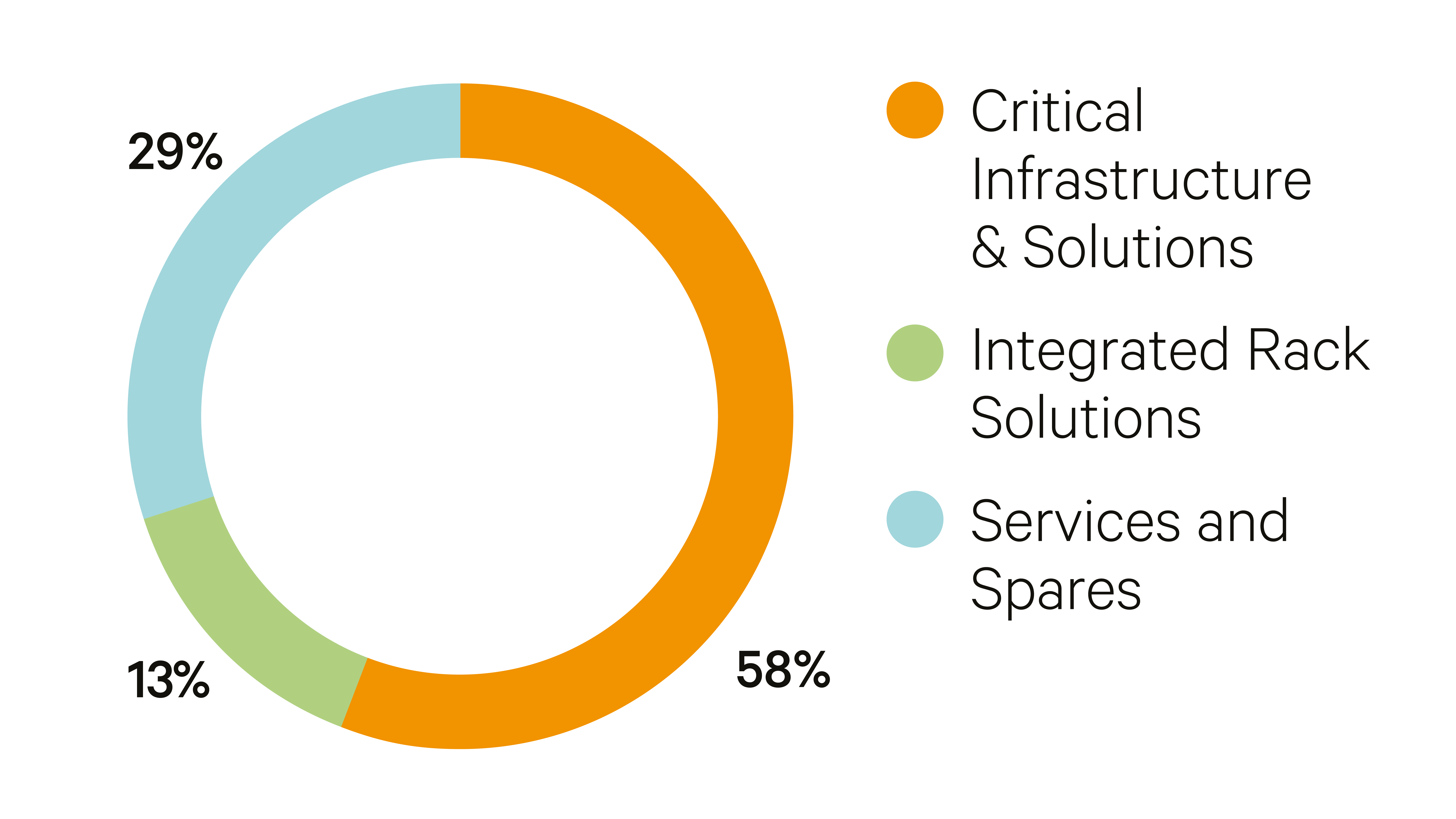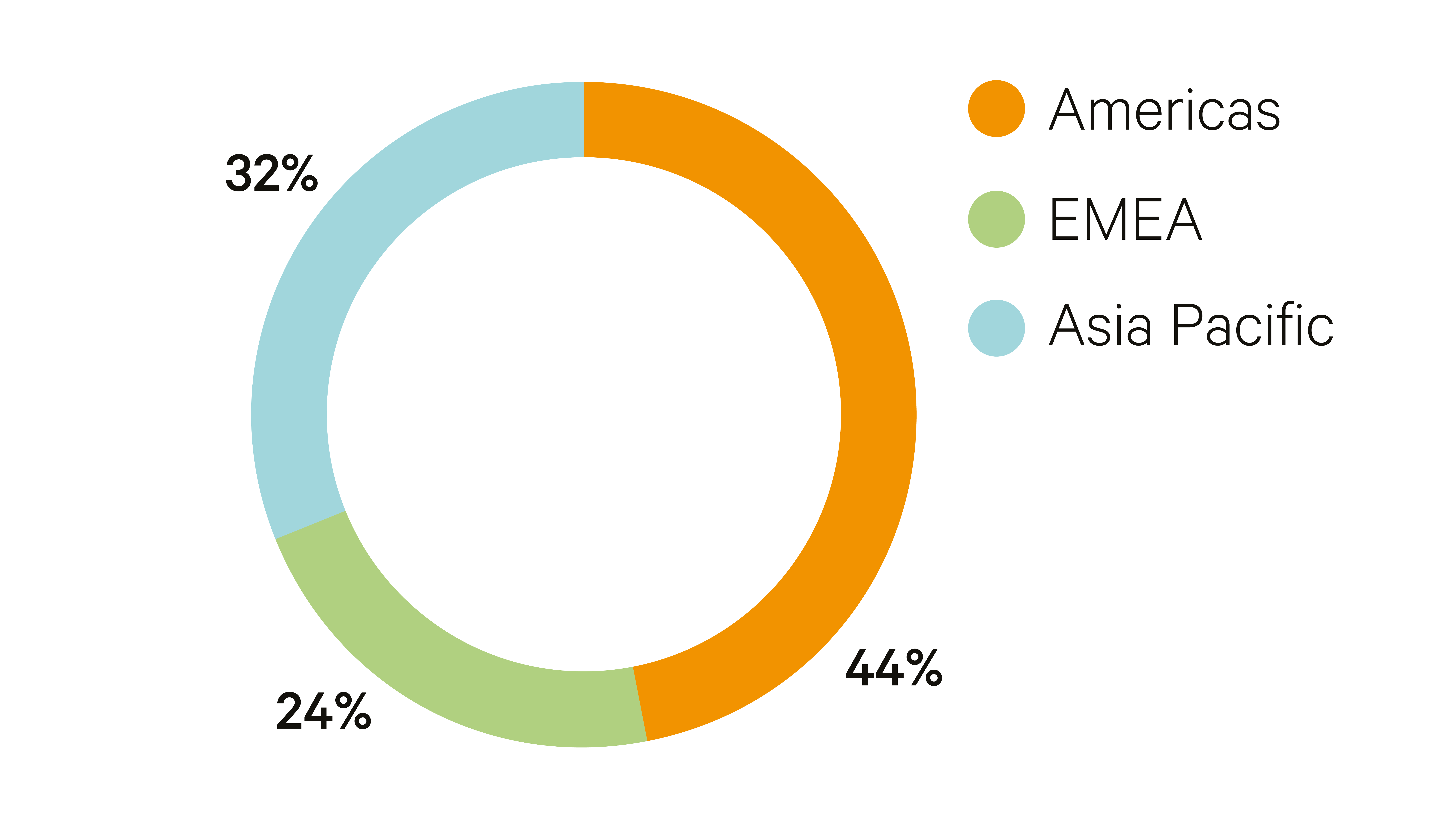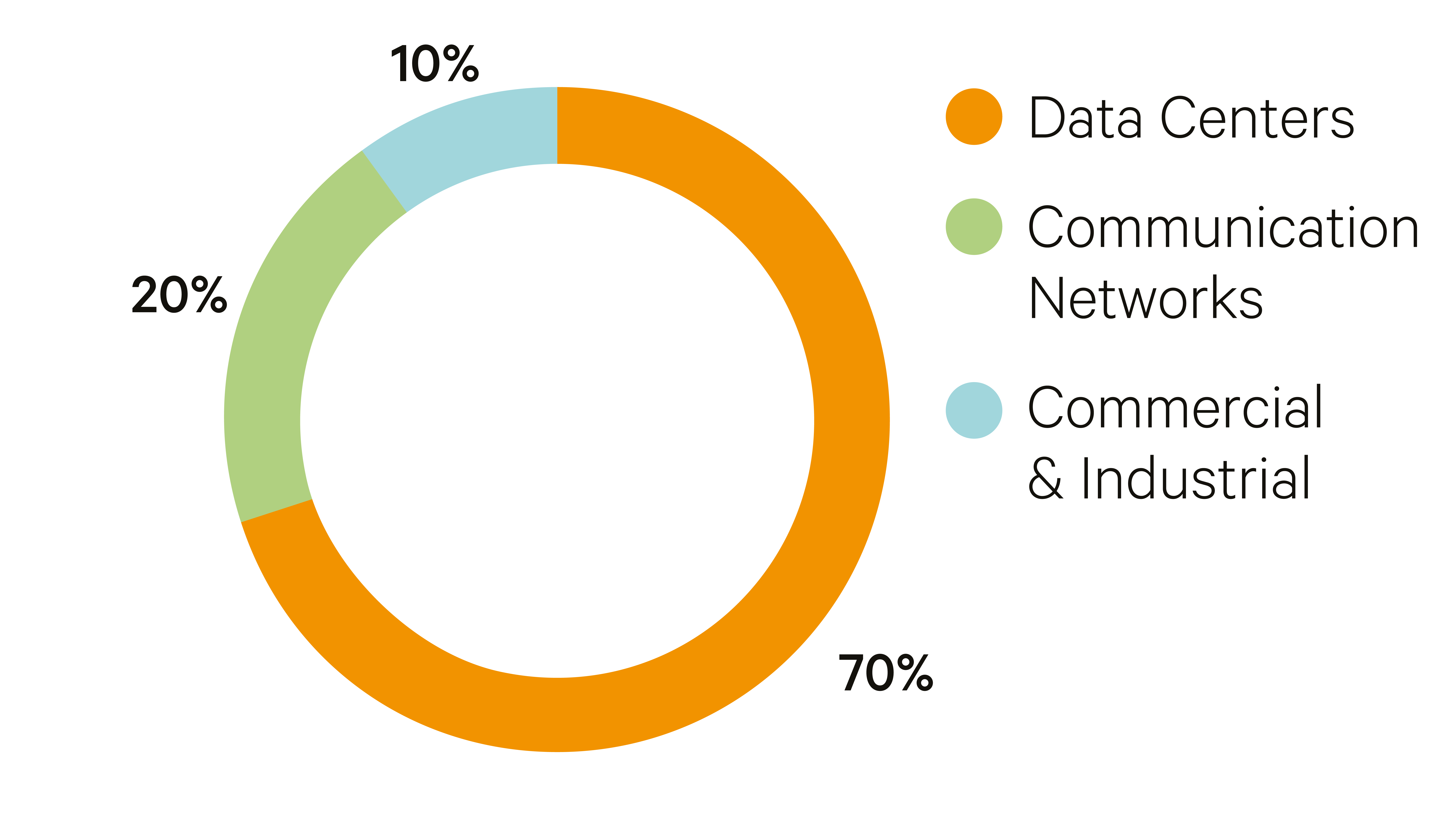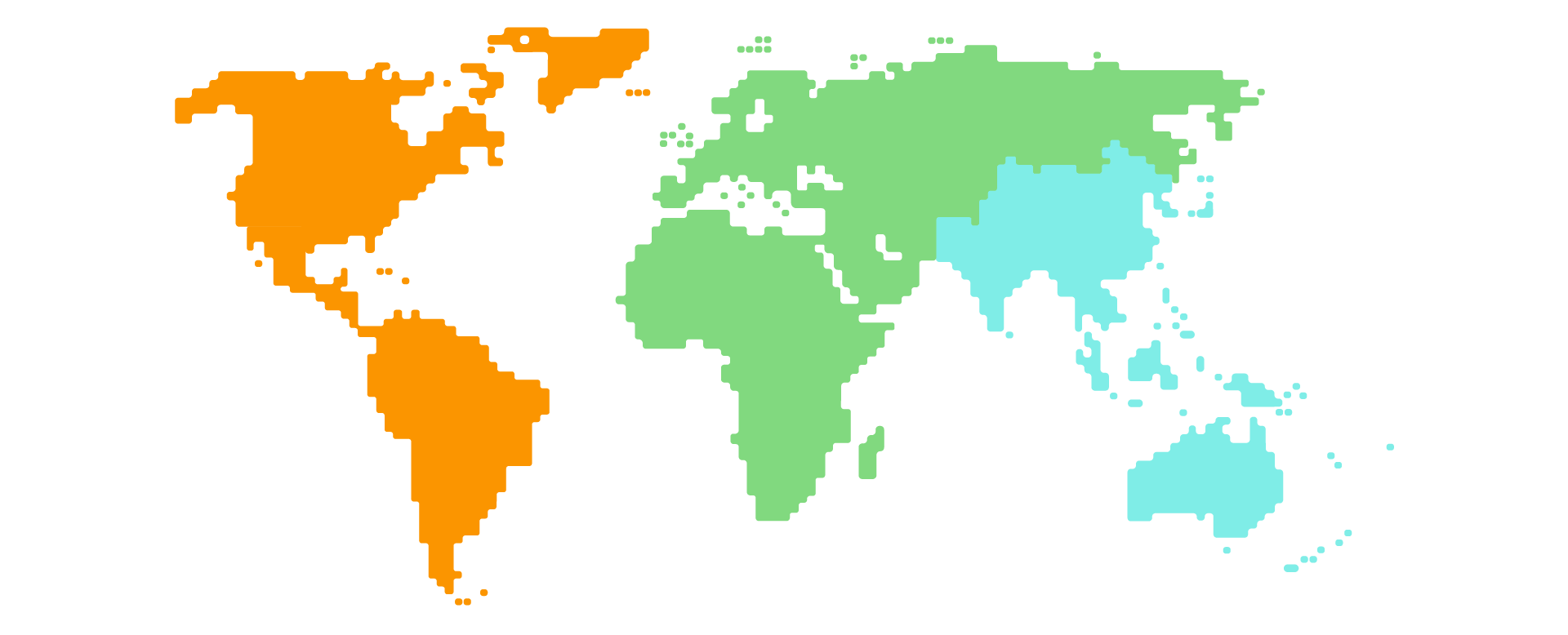Statement on Efforts to Combat Slavery and Human Trafficking
This statement describes Vertiv’s ongoing efforts to combat and prevent human trafficking and modern slavery in its business operations and global supply chains. This statement is made for the year ended December 31, 2021, pursuant to Section 54 of the U.K. Modern Slavery Act 2015, California Transparency in Supply Chains Act 2010 and Section 13 of the Australian Modern Slavery Act 2018. To summarize, Vertiv has zero tolerance for human trafficking and slavery, has measures in place to ensure that Vertiv employees, agents and suppliers do not engage in human trafficking and slavery activities, and continually revises those measures to keep in step with relevant legislation.
About Vertiv
Vertiv (NYSE: VRT) brings together hardware, software, analytics and ongoing services to enable its customers’ vital applications to run continuously, perform optimally and grow with their business needs. Vertiv solves the most important challenges facing today’s data centers, communication networks and commercial and industrial facilities with a portfolio of power, cooling and IT infrastructure solutions and services that extends from the cloud to the edge of the network.
Offering

Broad range of power, thermal, and IT and edge infrastructure, solutions, and services portfolio
Geography

Global, well-established footprint and supply-chain network
End Market

Customers who operate in some of the world's most critical industries
Vertiv is headquartered in Columbus, Ohio, USA, with regional offices in China, India, Philippines, and Italy. The company is publicly traded on the New York Stock Exchange with 2021 fiscal year revenues of USD 5 billion. We have approximately 24,000 employees worldwide and provide products and services to customers globally.

GLOBAL PRESENCE
Manufacturing Locations: 23
Service Centers: 290+
Service Field Engineers: 3,300+
Technical Support Personnel: 250+
Customer Experience Centers: 14
AMERICAS
Manufacturing Locations: 10
Service Centers: 170+
Service Field Engineers: 1,500+
Technical Support Personnel: 105+
Customer Experience Centers: 5
EUROPE, MIDDLE EAST AND AFRICA
Manufacturing Locations: 9
Service Centers: 65+
Service Field Engineers: 620+
Technical Support Personnel: 75+
Customer Experience Centers: 5
ASIA PACIFIC AND INDIA
Manufacturing Locations: 4
Service Centers: 55+
Service Field Engineers: 1,190+
Technical Support Personnel: 70+
Customer Experience Centers: 4
Our labor force is comprised of three categories: the first category includes personnel that physically contribute to the manufacturing and production of goods; the second category includes personnel that provide customer service and support related to our manufactured goods; and the third category includes personnel engaged in administrative, organizational and management processes.
Our supply chain is complex and includes more than 10,000 vendor partners in 115 countries providing Vertiv with manufactured components, raw materials, software, logistics support and services. Our suppliers vary by the nature of their business, size, location, type of workforce and scope of their upstream supply chain. Vertiv’s supply chain is multi-tiered and we are typically many levels removed from mines, smelters, refiners and other activities which could be exposed to human trafficking risk.
However, in all categories of supply and services, Vertiv is committed to fostering long-term relationships with vendors who support Vertiv’s commitment to responsible and ethical business practices.
Vertiv’s Identification and Assessment of the Risks of Modern Slavery and Trafficking
Vertiv is operating in an industry that combines companies from different sectors. The overall risk of modern slavery and human trafficking has been assessed in relation to Vertiv’s supply base referencing variable factors including the geographic location of suppliers and the industry in which suppliers operate. The diversified nature of the supply chain influenced by the different governing structures has been identified as the biggest risk for modern slavery and trafficking. Additionally, the lack of visibility of policies and processes to identify, prevent and address the modern slavery and human trafficking risks among Vertiv’s non-direct suppliers has been identified as a risk connected to Vertiv’s supply chain.
As a globally operating entity, Vertiv appreciates the importance of respecting human rights in its own operations and supply chain. In furtherance of this commitment, Vertiv follows a thorough set of human rights policies; engages in ongoing due diligence, engagement, and commitment to improve Vertiv’s anti human trafficking and slavery-oriented efforts; and engages with its supply chain while holding suppliers accountable for commitment to comply with applicable laws and Vertiv’s Supplier Code of Conduct.
Vertiv Policies Regarding Human Trafficking and Slavery
Vertiv is a member of the Slavery & Trafficking Risk Template (STRT) Development Committee of the Social Responsibility Alliance, a committee dedicated to the eradication of human trafficking and modern slavery from supply chains around the globe. In furtherance of this goal, we have incorporated the principles of the STRT into our human resources and supply chain policies, procedures and supporting standards, including the following:
- Human Rights Policy
Our Human Rights Policy requires Vertiv to respect human rights in all its operations worldwide and aligns with the United Nations Global Compact and Universal Declaration of Human Rights. The policy articulates Vertiv’s commitment to comply with all applicable laws and employment regulations in our operations and requires that our suppliers and business partners be required to do the same. Specifically, the policy states as follows:- We do not accept forced, bonded or indentured labor.
- Involuntary or exploitative prison labor, slavery or trafficking of persons is prohibited.
- It is prohibited to hold or otherwise destroy, conceal, confiscate or deny access by employees to their identity or immigration documents.
- We provide all employees, including those hired by recruiters, with detailed and accurate work contracts or similar work papers, prior to relocation in cases where the employee must relocate to perform the work, and in a language understood by the employee.
- We do not charge employees any recruitment fees. When engaging recruiters, we will ensure that such recruiters and their subcontractors (i) do not charge the workers recruitment fees and (ii) comply with Vertiv’s Code of Conduct, our Human Rights Policy, the local labor laws of the country in which the recruiting takes place, and the local labor laws of the country of employment.
- Vertiv Code of Conduct
Vertiv’s Code of Conduct outlines the actions and behaviors expected from every employee, officer, and director around the world on how we do business and strictly prohibits slavery and human trafficking in our global operations and supply chains. - Supplier Code of Conduct
Vertiv’s Supplier Code of Conduct identifies the business ethics and human rights principles to which all our suppliers worldwide are expected to adhere and incorporate into their business operations. The Supplier Code of Conduct explicitly prohibits suppliers from engaging in any form of forced labor or discrimination and emphasizes the importance of humane treatment and a healthy and safe working environment. Our contracts with suppliers require them to comply with the Supplier Code of Conduct and all applicable laws and employment regulations where they operate, and further requires them to acknowledge acceptance of the Supplier Code of Conduct upon request of Vertiv. - Conflict Minerals Statement
Our Conflict Minerals Statement draws on internationally recognized standards to advance social and environmental responsibility and declares Vertiv’s ongoing efforts to end the human suffering and environmental impact associated with mining conflict minerals. - Conflict Minerals Report
Our Conflict Minerals Report provides detailed information on Vertiv’s compliance with Rule 13p-1 of the Securities Exchange Act of 1934, as amended, and our efforts to uphold responsible sourcing practices and maintain an effective due diligence program for the presence of conflict minerals in our supply chain. Vertiv requires that all materials used in its products be preferably sourced from conflict-free smelters or refiners.
The above-mentioned documents oppose, and we forbid our suppliers to use, any form of forced, bonded, or indentured labor. In support of this requirement, Vertiv takes the following specific actions to prevent and mitigate the risk of slavery and human trafficking in our supply chain:
1. Verification
Vertiv evaluates, assesses, and verifies the risk of human trafficking and slavery in our supply chain as part of our vendor monitoring and review process, and our supplier verification framework includes specific inquiries into human rights and anti-human trafficking efforts.
In 2021, Vertiv continued to partner with Assent (an internationally renowned and recognized third-party service provider) to gather data from suppliers and identify areas of potential risk. We used the following criteria to identify suppliers to include in the risk assessment:
- Location and country risk, as published by the U.S. Department of State in its Trafficking in Persons Report, with a focus on suppliers with operations in Tier 3, Tier 2 and Tier 2 Watch List countries (as defined by the U.S. Department of State)
- Vertiv’s spend with the supplier (suppliers in Tier 3 with spend greater than $50,000; suppliers in Tier 2 and Tier 2 Watch List countries with spend greater than $100,000; and suppliers making up the top 50% of spend regardless of Tier)
- Potential connection to the Xinjiang province in China
In 2021, Assent contacted the suppliers selected by above-described criteria and requested they complete and submit a version STRT 2.1.
All supplier responses and communications were monitored and tracked by Assent for reporting and transparency. Vertiv directly contacted suppliers that were unresponsive and requested these suppliers to complete and submit the STRT with all applicable supportive documents to Assent or directly to Vertiv.
All supplier responses and provided Slavery and Trafficking Risk Templates STRT 2.1 were further assessed according to Guidance published by Social Responsibility Alliance and suppliers were categorized into the three main risk categories.
- Low Risk Suppliers
This category includes suppliers operating in low-risk industry, low-risk geography with low-risk workforce whose STRTs indicate low risk or no perceived inherent risk.
The category also includes suppliers operating in high-risk industry, high-risk geography, and /or with a high-risk workforce with policies, practices and procedures which adequately control risks based on the provided STRT and supportive documents. - Medium Risk Suppliers
This category represents suppliers operating in high-risk industry, high-risk geography, and/or with high-risk workforce with policies, practices and procedures which partially control risks based on the provided STRT and supportive documents. - High Risk Suppliers
This category represents suppliers operating in high-risk industry, high-risk geography, and/or with high-risk workforce with policies, practices and procedures which do not adequately control risks based on the provided STRT and supportive documents.
Vertiv further divided high risk suppliers into 4 subcategories based on major risks identified through information provided by suppliers in submitted STRTs in order to be able to adequality mitigate identified risks.
The subcategories are:
- Suppliers with weak AHTS policies- supply chain management
No policy framework ensuring the issue of Anti Human Trafficking and Slavery (AHTS) policies to suppliers and; No contractual terms and conditions which require suppliers to affirmatively agree to AHTS policies. - Suppliers with weak AHTS policies- supply chain management
No policy framework ensuring the issue of Anti Human Trafficking and Slavery (AHTS) policies to suppliers and; No contractual terms and conditions which require suppliers to affirmatively agree to AHTS policies. - Suppliers with weak AHTS policies- supply chain management
Not performing formal screening and evaluation of prospective recruiters to determine if they operate in compliance with the law and applicable principle of not charging any recruitment fees. - Suppliers with no chi`ld work policy framework and no modern slavery policies framework
Suppliers without adequate policies opposing child work and modern slavery. - Suppliers with confirmed links to Xinjiang labor
Supplier which indicated connection to Xinjiang labor.
2. Audits
Vertiv participated in an independent audit by ISS Corporate Solutions that assessed Vertiv’s performance related to labor rights and working conditions. We are using the results of the audit to improve our worldwide policies and procedures by incorporating specific anti-human trafficking concepts and increasing awareness.
As part of our vendor onboarding process, each of our suppliers of production materials must undergo an audit that requires their disclosure of policies related to ethics, compliance with law, labor rights and working conditions. Vertiv does not perform periodic or on-site audits of our suppliers to assess compliance with our Supplier Code of Conduct or human rights program.
3. Certification
Our vendor onboarding procedure requires that new suppliers receive the Supplier Code of Conduct and we maintain a self-certification program that requires suppliers to formally acknowledge the Supplier Code of Conduct each year upon request. Further, our Master Purchasing Agreements and Terms and Conditions of Purchase require suppliers to comply with all applicable laws and regulations, including those relating to human trafficking and slavery, and to furnish Vertiv a certificate of compliance upon request.
4. Accountability
All Vertiv employees, officers and directors must adhere to our Code of Conduct and Human Rights Policy, and all suppliers are expected to adhere to our Supplier Code of Conduct.
Vertiv has a dedicated global procurement compliance team that monitors Vertiv’s vendor base and regularly reports to senior management on our efforts to identify and eliminate the risk of human trafficking and slavery in our operations and supply chain.
Vertiv has implemented a toll-free, 24 hour-per-day reporting hotline available to all employees, suppliers, and customers worldwide to report any suspected violations of Vertiv’s Code of Ethics or Supplier Code of Conduct, including any suspected violations of our policies against human trafficking and slavery. A supplier’s breach of our Supplier Code of Conduct requires immediate corrective action and may include termination of the business relationship. To report an ethics concern or suspected ethical or legal violation, please file a report at: VertivCo.EthicsPoint.com
5. Training
Vertiv believes that each employee, officer and director is responsible for adhering to the Code of Conduct. To raise awareness of the Code and enforce its principles, we require all Vertiv personnel to sign the Code upon hiring and participate in an annual ethics training course. As part of our annual ethics training, our employees are required to acknowledge that they understand and will comply with the Code, and that they are aware that a violation could result in disciplinary action, up to and including termination. In addition, Vertiv provides training on our standards for labor rights and working conditions to all employees in human resources, health and safety, and those who engage with vendors and service providers in our supply chain. Our metric for success is 100% completion of all assigned training, including our annual ethics training and human rights training.
In cooperation with Assent Compliance, Vertiv provides its vendors with training resources and additional information about efforts to combat human trafficking and slavery and on Vertiv’s anti-human trafficking, conflict minerals and Supplier Code of Conduct programs.
Board Approval
This statement has been approved by the board and signed by a director or officer of the following Vertiv entities as required by applicable law:
Geist Europe Limited
28 June 2022
Zachary Stein
Vertiv Company Group Limited
28 June 2022
Paolo Gattagrisa
Vertiv Corporation
30 June 2022
Robert M. Wolfe
Vertiv Group Corporation
30 June 2022
Stephanie Gill
Vertiv Infrastructure Limited
28 June 2022
Michael O’Keeffe
Vertiv Integrated Systems GmbH
28 June 2022
Giovanna Moschetto
Vertiv Slovakia a.s
28 June 2022
Giordano Albertazzi
Vertiv S.r.l,
28 June 2022
Franco Costa
Vertiv (Australia) Pty. Ltd.
28 June 2022
Robert Charles Linsdell
